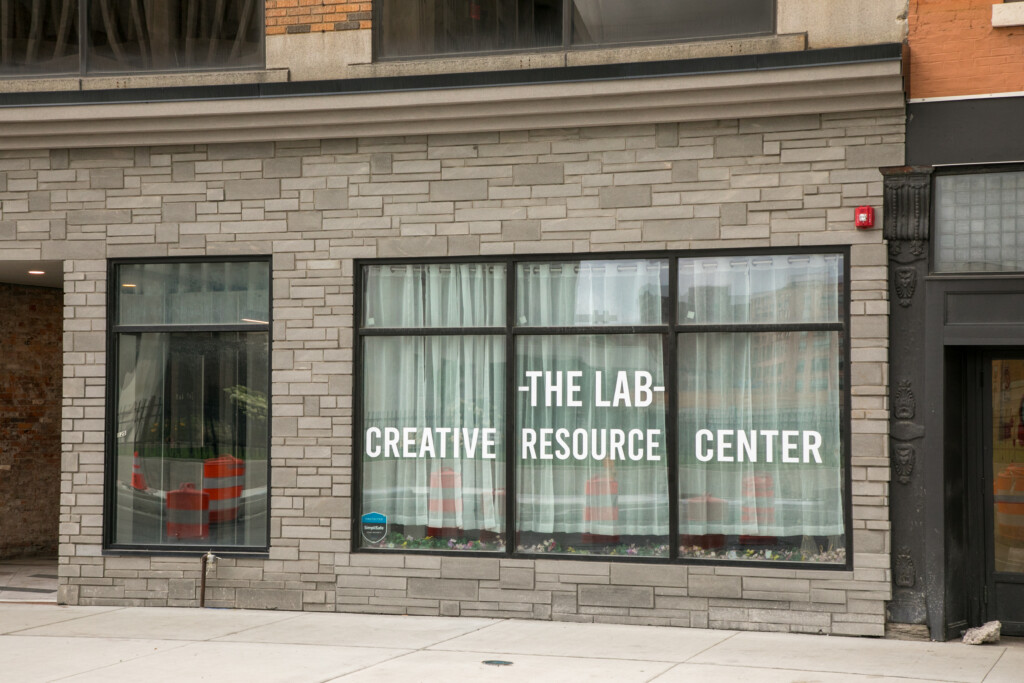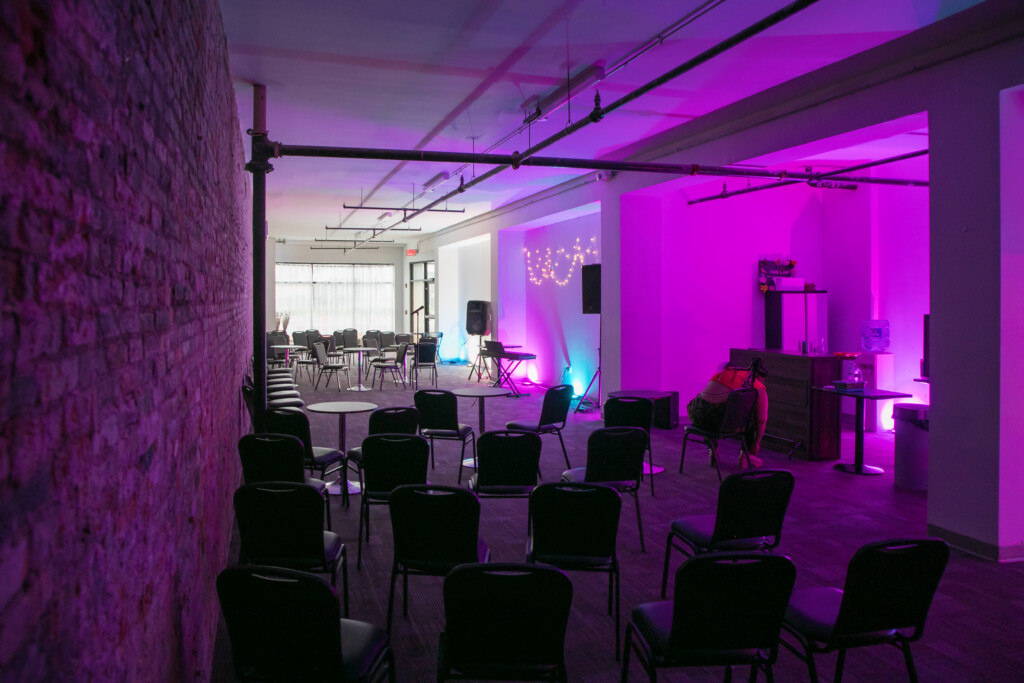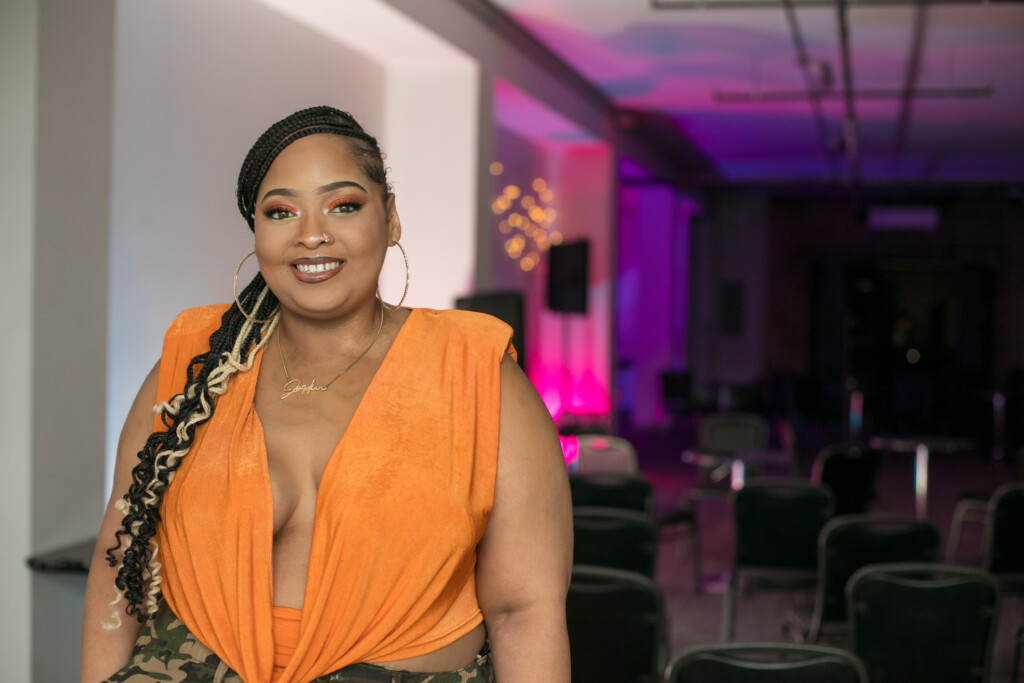The idea for The Lab: Creative Resource Center was born a long time ago. “It’s always been with me,” says Jordin Pickett, twenty-seven. “I always wanted to create safe spaces for people who look like me in the city.” In Rochester, she says, “We have such beautiful things, but it’s overshadowed by such violence and trauma.”
Pickett is a writer and poet who grew up as an only child on Rochester’s east side. As a little girl, she was not very interested in sports and wanted to take art classes instead. “So, my mother had to search for programs to put me in, and I am always in these classes with a whole bunch of white kids,” she remembers, because the classes were not necessarily affordable for or known to people from the city. As a teenager Pickett hosted Lyrics at Liberty, a popular open mic night for young people at the Liberty Pole. There weren’t enough open mics for those too young to go to bars, she explains, so she started her own. The event took off. “It got really, really big and really successful,” and when it came time to move it indoors for the winter months, there wasn’t a perfect space— participants would have had to pay, or it would have had to be hosted in a church, which she feared would hinder creative expression. That’s when Pickett began dreaming of opening a place like The Lab.
Since she opened the doors in January, The Lab has hosted an array of events: everything from paint-and-sip nights and open mics to meetings to art exhibitions as well as National Black Authors Day and Trans Day of Visibility. “A woman taught a class on Taino history,” she says. “All creative events and private, intimate things.” She’s been able to collaborate with many nonprofits that have used the space, including MOCHA Rochester, a nonprofit that promotes LGBTQIA+ health and wellness for communities of color in New York State and BERR (Build Educate Rise and Restore), which offers homeschooling programs and after-school programs. The Lab is available for private events, with tiered pricing starting at $75 per hour.
Pickett discovered her talent for event planning while in college at SUNY Brockport. She was director of advocacy for Brockport student government and ended up planning many campus events completely from scratch. “That got me into planning events and [knowing] what outreach looks like and how it can look different for different groups of people,” she says. It’s important to be “consistently creative,” she adds. If you have the same event over and over again, people won’t come. She was a very active advocate and activist at Brockport. “I love my school, but I challenged my school a lot.” For one thing, she wanted efforts to diversify the school to be more intentional. “There are amazing people that work [at Brockport] who want to continue those efforts.” Pickett tried majoring in history but wasn’t as interested in the European history that the college offered. “They have smaller classes on other backgrounds and other parts of the world but mainly European history. I just didn’t think that was fair.” She switched her major to English and found a strong sense of community in that department. “English professors are writers who work a day job, and I just love that,” she laughs. She found these professors very inspiring. “It was lifesaving,” she says.
Her mission at The Lab is “very BIPOC-driven. Everybody is welcome here of course, but this is a space to highlight and to be safe for BIPOC individuals from all walks of life.” When she looked for locations for her new venture, she wanted the person she was renting from to understand this completely so there wouldn’t be any problems down the line, “when I’m having large gatherings with Black and brown people, LGBTQIA+ people,” she says. She found what she was looking for in her landlord Bernard Birnbaum, owner of the Warrior Factory. “They are great people.”
The ongoing construction on State Street has been a challenge. Earlier in the year “I left for a couple days and came back, and I had no sidewalk. It was a hole,” she says. Pickett and the other business owners along the street, such as the UUU gallery and Red White and Brew are coming together to plan a street-reopening event when the construction is finished (projected for November). She’s really pleased about the number of new people she’s been able to meet. “It’s been an amazing experience.” She’s been learning to run a business and has been getting very positive feedback, she says—people seem to love what she’s doing. “I don’t know—I feel like I am in the prime of my life,” she says. “I’m doing great.”
She would like to expand to include classrooms, a fully equipped resource center, and a food pantry. “Like a YMCA for creatives,” with something for every discipline. She hopes to have a recording studio, a painting studio, and a black box theater. “The biggest problem I think The Lab could solve is making art accessible to people.” The city is rich in art festivals, concerts, and murals, but she believes more focus should be placed on the artists themselves. She loves to see people buying art from people they know and hopes to bring in more funding so that she can offer the space for free and employ teaching artists. “I really feel like joy is what is going to cure our city. I know that sounds so corny and hippie, but joy is a great combatant for violence and anger and trauma.” Being in a space that exudes joy is restorative to the soul, she says, in a city where people have normalized hearing gunshots, seeing dead bodies. “If we fight back with what we know—I mean, I’m a poet. I’m not a police officer, I’m not a paramedic—but I know I can give my art.” Learn more at thelabcrc.com.
Views: 5







